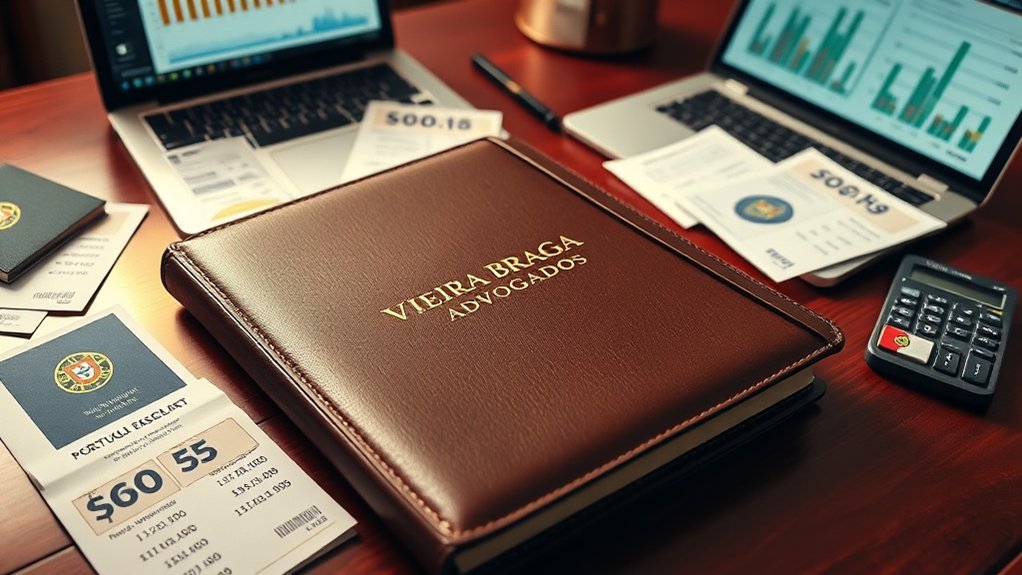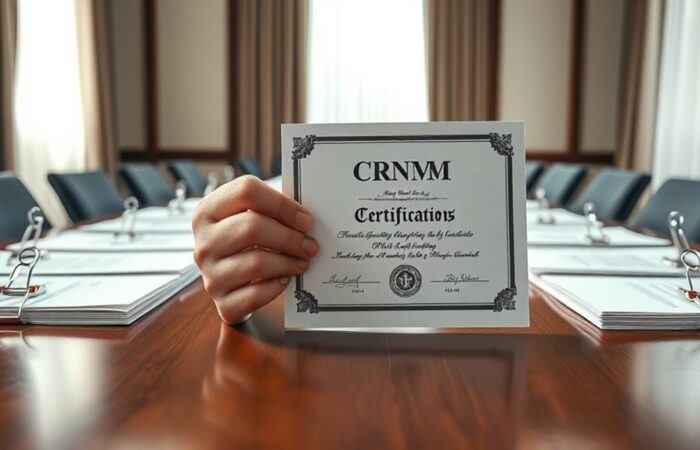You’re considering Portugal’s Digital Nomad Visa, but you’re unsure whether your income documentation will meet their strict requirements. The Portuguese immigration authorities won’t accept just any proof of financial stability—they’ve established specific thresholds of USD 1,500 monthly income or USD 18,000 in available funds, and they’re particular about how you demonstrate these amounts. What many applicants don’t realize is that even meeting these figures doesn’t guarantee approval if your documentation lacks the proper legal formatting.
Understanding Portugal’s Digital Nomad Visa Financial Requirements

How much money do you actually need to qualify for Portugal’s digital nomad visa? Portugal requires you to demonstrate a minimum monthly income of €2,760 (approximately USD 3,000) or four times the national minimum wage. However, alternative pathways exist through specialized legal guidance.
You’ll need to prove financial stability through employment contracts, freelance agreements, or business documentation showing consistent income streams. Bank statements from the past three months must verify your earnings capacity. If you’re self-employed, you’ll submit tax returns and client contracts demonstrating sustainable revenue.
The visa application demands proof you can support yourself without burdening Portugal’s social services. Your income source must be location-independent, allowing remote work from Portuguese territory. Investment income, rental properties, or digital business revenues qualify as acceptable funding sources.
Documentation must be recent, authenticated, and translated into Portuguese. Meeting these financial thresholds ensures your application progresses smoothly through Portugal’s immigration process.
Given the complexity of immigration laws and frequent updates to requirements, securing experienced legal assistance significantly enhances your likelihood of successful visa approval and helps avoid costly delays or rejections.
Documentation Standards for Income Verification Under Portuguese Law
You’ll need to provide specific financial documents that meet Portuguese legal standards when applying for a digital nomad visa. These required financial documents must demonstrate consistent income and comply with Portugal’s official verification processes. Understanding the legal compliance standards ensures your application won’t face delays or rejection due to inadequate financial proof. Professional guidance helps prevent delays and unnecessary expenses by ensuring all documentation meets the detailed requirements of Portugal’s immigration laws.
Required Financial Documents
Since Portuguese immigration authorities maintain strict documentation standards, you must provide specific financial documents that clearly demonstrate your minimum monthly income of €700. These documents serve as legal proof of your financial stability and ability to support yourself while residing in Portugal.
| Document Type | Acceptance Status |
|---|---|
| Bank statements (3 months) | ✅ Required |
| Employment contracts | ✅ Accepted |
| Freelance invoices | ⚠ Needs validation |
| Cryptocurrency records | ❌ Not accepted |
You’ll need recent bank statements showing consistent income deposits, official employment documentation, or validated freelance agreements. Cryptocurrency earnings aren’t recognized as stable income sources. Each document must include official stamps, signatures, and translations into Portuguese when necessary. Incomplete documentation will result in visa rejection. For comprehensive guidance on meeting these financial requirements and navigating Portuguese immigration law, consider consulting with legal experts who specialize in immigration matters to ensure full compliance with local regulations.
Legal Compliance Standards
When submitting income documentation for Portugal’s digital nomad visa, your financial records must comply with specific legal standards established by Portuguese immigration law. You’ll need authenticated bank statements covering three consecutive months, showing consistent income of at least USD 1,500 monthly. Employment contracts or freelance agreements must include detailed compensation terms and be notarized or apostilled in your home country. Tax returns from the previous year require official certification from relevant tax authorities. All foreign documents need certified translations into Portuguese by sworn translators. Digital copies aren’t acceptable; you must provide original documents or certified copies. Financial statements must clearly demonstrate the source of income, whether from employment, freelancing, or business activities, with corresponding transaction records supporting your declared earnings. Given the complexity of immigration laws and frequent regulatory changes, seeking professional guidance from experienced immigration attorneys increases your chances of successful visa approval and helps avoid costly documentation errors.
Acceptable Income Sources for Digital Nomad Visa Applications

While most countries accept traditional employment income, digital nomad visa applications typically require specific documentation proving your income originates from legitimate remote work sources. You’ll need to demonstrate earnings from freelancing contracts, remote employment agreements, or business ownership documentation.
Acceptable income sources include W-2 forms from remote employers, 1099 forms for contract work, and business registration documents for entrepreneurs. Bank statements showing consistent deposits from these sources strengthen your application significantly.
Investment income, including dividends, rental properties, and capital gains, typically qualifies if you can prove regular monthly distributions. However, you can’t rely solely on savings account balances without demonstrating active income generation.
Cryptocurrency earnings require additional documentation, including transaction histories and tax filings, since many countries remain cautious about digital assets. You should convert crypto income to traditional currency before applying.
Consulting fees, online course sales, and digital product revenues all qualify, provided you maintain proper invoicing records and tax compliance documentation. Similar to U.S. immigration processes, digital nomad visa applications require financial support documentation to be organized and presented clearly to demonstrate your ability to sustain yourself during your stay.
Alternative Financial Proof: The USD 18,000 Fund Requirement
Some countries offer an alternative pathway for digital nomad visa applicants who can’t meet traditional income requirements through a substantial fund deposit or savings threshold, typically around USD 18,000.
This lump-sum approach provides flexibility if you don’t have consistent monthly income but possess significant savings. You’ll need to demonstrate these funds are readily accessible and legitimately obtained through bank statements, investment portfolios, or other financial documentation.
Key advantages of the fund requirement include:
- No monthly income verification – You won’t need to prove ongoing earnings
- Greater financial flexibility – You can use savings, investments, or inheritance
- Simplified documentation – Fewer financial records required than monthly income proof
However, you must ensure these funds remain available throughout your visa validity period. Some countries may require the money to stay in designated accounts or impose withdrawal restrictions. This option works best if you’re between projects, have irregular income patterns, or prefer using accumulated wealth rather than demonstrating active earnings.
For entrepreneurs considering longer-term relocation, establishing a U.S. company can provide additional pathways to entrepreneur visas like the E-2 or EB-5, which offer more permanent immigration solutions beyond temporary digital nomad status.
Common Documentation Errors That Lead to Visa Rejections

Even though you’ve gathered all the required financial documents, seemingly minor errors can derail your digital nomad visa application and result in costly rejections. Portuguese immigration authorities scrutinize every detail, and documentation mistakes often trigger automatic denials.
The most frequent errors involve incomplete bank statements, incorrect currency conversions, and missing official translations. You’ll also face rejection if your documents aren’t properly authenticated or if there’s inconsistency between different financial records.
| Error Type | Common Mistake | Solution |
|---|---|---|
| Bank Statements | Missing recent months or incomplete transactions | Provide 3-6 consecutive months with all pages |
| Currency Issues | Using unofficial exchange rates or wrong calculations | Use official bank rates with dated proof |
| Authentication | Unsigned documents or missing apostille stamps | Obtain proper notarization and apostille certification |
Double-check every document before submission. One missing signature or incorrect date can delay your application by months and cost additional fees. Professional legal assistance can help identify and prevent these common documentation errors that frequently lead to application denials and unnecessary delays.
Long-Term Immigration Strategy Beyond Initial Visa Approval
Once you’ve secured your digital nomad visa, you’ll need to think strategically about your long-term immigration goals and whether this visa can serve as a stepping stone to permanent residency. You must also carefully plan your tax obligations, as maintaining nomad status while building toward permanent residence creates complex considerations across multiple jurisdictions. Your initial visa approval is just the beginning of a longer journey that requires coordinated planning between immigration pathways and tax strategy. For investors with substantial capital, the EB-5 visa provides a direct pathway to permanent U.S. residency through significant business investment and job creation requirements.
Pathway to Permanent Residency
While digital nomad visas offer an excellent entry point into your chosen country, they’re typically temporary solutions that don’t automatically lead to permanent residency. You’ll need to strategically plan your transition from temporary digital nomad status to long-term residency options.
Most countries require you to meet specific criteria beyond your initial visa requirements:
- Extended residency periods – Usually 3-5 years of continuous legal residence
- Language proficiency – Demonstrating fluency in the local language through certified tests
- Integration requirements – Completing cultural courses or community involvement programs
You should research your host country’s naturalization laws early in your digital nomad journey. Some nations offer accelerated pathways through investment programs or skilled worker categories. Consider consulting immigration attorneys who specialize in transition strategies from temporary to permanent status.
For those considering the United States as a long-term destination, employment-based visas like EB-1 and EB-2 categories can provide direct pathways to permanent residency for qualified professionals.
Tax Planning Considerations
Before you pack your bags and relocate, you’ll need to understand the complex tax implications that come with digital nomad status and long-term residency planning. Your tax obligations depend heavily on residency classification and income sources.
| Residency Status | Tax Rate | Obligations |
|---|---|---|
| Non-resident | 25% | Foreign-sourced income only |
| Temporary resident | 15-27.5% | Portuguese-sourced income |
| Tax resident | 14.5-48% | Worldwide income |
| NHR beneficiary | 10-20% | Reduced rates for 10 years |
| EU citizen | Variable | Standard EU protocols |
You’ll want to consult with Portuguese tax advisors before establishing residency. Consider timing your move strategically to maximize tax benefits, especially if you’re eligible for the Non-Habitual Resident program, which offers significant advantages for qualifying professionals. Additionally, implementing detailed tax planning strategies can ensure competitiveness in your new business environment while facilitating your long-term immigration goals.
Frequently Asked Questions
Can Cryptocurrency Earnings Count Toward the USD 1,500 Monthly Income Requirement?
You’ll need to verify with Portuguese immigration authorities whether cryptocurrency earnings qualify for the income requirement. While crypto’s increasingly recognized as legitimate income, regulations vary by country and visa type. You should document your crypto earnings through exchange statements, tax filings, and bank transfers showing consistent monthly income. Consider consulting with immigration lawyers who specialize in Portugal’s digital nomad visa requirements for current guidance.
Does Vieira Braga Advogados Offer Payment Plans for Their Visa Services?
You’ll need to contact Vieira Braga Advogados directly to inquire about payment plans for their visa services. Most immigration law firms offer flexible payment options, but their specific terms aren’t publicly listed. They’ll likely discuss payment arrangements during your initial consultation, potentially offering installment plans based on your case complexity and their fee structure. Reach out to them directly for accurate information about their payment policies.
How Long Does the Visa Application Process Typically Take With Their Assistance?
You can expect the Digital Nomad Visa application process to take approximately 2-4 months with Vieira Braga Advogados’ assistance. They’ll help streamline your application by ensuring all documents meet requirements and submitting everything properly. The timeline depends on government processing speeds, document preparation time, and any additional requests from Portuguese authorities. Their expertise typically prevents delays caused by incomplete or incorrect submissions, making the process more efficient than applying independently.
Are There Additional Fees Beyond the Government Visa Application Costs?
Yes, you’ll pay additional legal fees beyond the government’s visa application costs when using Vieira Braga Advogados. Their service fees typically cover document preparation, application submission, communication with authorities, and consultation throughout the process. You should expect to pay both the official government processing fees and their professional legal services separately. Contact them directly for their current fee structure and specific pricing for Digital Nomad Visa assistance.
Can Married Couples Combine Incomes to Meet the Financial Requirements?
You can’t combine incomes with your spouse to meet the financial requirements for Portugal’s Digital Nomad Visa. Each applicant must independently demonstrate the minimum income of USD 1,500 per month or USD 18,000 in available funds. If you’re both applying, you’ll each need to meet these financial thresholds separately. Joint applications don’t allow for pooled financial resources when proving economic sufficiency.
Conclusion
You’ve learned the essential financial requirements for Portugal’s Digital Nomad Visa, whether you’re earning USD 1,500 monthly or maintaining an USD 18,000 fund. Don’t let documentation errors derail your application. You’ll need precise bank statements, contracts, and proof that meets Portuguese immigration standards. Vieira Braga Advogados can guide you through these complex requirements, ensuring your paperwork’s accurate and your visa approval chances are maximized for long-term success.






